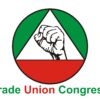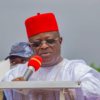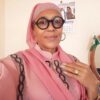News
World Population Day: Stakeholders canvass women and girls empowerment for stable, sane society
As Nigeria joins other countries of the world to observe the World Population Day next Tuesday, stakeholders have tasked the government to provide a level playing ground for women and girls to enjoy better lives by enhancing gender equity and equality, reports IFEDAYO OGUNYEMI.
There are numerous challenges facing the average woman and girl-child today globally. Many of those challenges are inhibiting the realisation of their potential. The potential of women, when realised, has been projected to lead to flourishing homes, communities and society.
It is believed that this is one of the reasons “Unleashing the Power of Gender Equality, Uplifting the Voices of Women and Girls to Unlock Our World’s Infinite Possibilities’’ was agreed on to be the theme of this year’s World Population Day (WPD).
Celebrated globally every July 11, the WPD was established by the Governing Council of the United Nations Development Programme (UNDP) in 1989 to raise awareness of global population issues.
The observance of this year’s WPD offers all to reflect on the potential of the women and girl-child at a time the global world population passed eight billion in November 2022.
According to the United Nations Population Fund (UNFPA), women and girls who make up 49.7 per cent of the global population are often ignored in discussions on demographics, with their rights violated in population policies.
The UNFPA, which drives sexual and reproductive rights and choices for all, especially women and young people, argues that marginalising and excluding women and girls in discussions will result in “a problem that will prevent all of us from experiencing a more prosperous, peaceful and sustainable future.”
Many advocates have posited that the root of this marginalisation is gender inequality. UNFPA further noted that “this pervasive injustice keeps women and girls out of school, the workforce and leadership positions; limits their agency and ability to make decisions about their health and sexual and reproductive lives; and heightens their vulnerability to violence, harmful practices and preventable maternal death, with a woman dying every two minutes due to pregnancy or childbirth.”
In Nigeria, the problem of gender inequality is more enormous and pronounced as the society still operates a patriarchal nature where the needs of the women and girls are naturally subjugated under the influence of men.
And because of the numerous challenges facing them, many women and girl’s rights advocates believe the future of the liberation of the women and girl-children in the Nigeria society is unpredictable.
Speaking to Sunday Tribune on the numerous challenges facing women in Nigeria today, Associate Professor of International Peace and Security, Dr Tope Olaifa, said though a larger percentage of the society is now aware of women and girls rights, the society is still male-dominated as a lot of people do not think fighting for women and girl-child rights is something worthy.
“The patriarchal attitude of the people still makes them think women and children are subjects of the male and as such should be subjugated under the influence of the male counterparts,” Olaifa said. “Some women in the society have also been wired to think that way and it is difficult for them to see the reason to fight for equity or equality when it comes to their relationship with men and this is causing a lot of problems.”
She added that “because women don’t understand their position, it is difficult for them to bring their children up thinking in a liberal way. As such, the stigma, suppression and oppression continue to be passed to them from the psyche of the mother.”
Speaking in the same vein, a women and girl’s rights advocate and founder of Nana Women And Girls Initiative, Fatima Adamu, listed education, gender violence and economic barriers as the three major challenges facing women empowerment in Nigeria.
“With education, we can address the rest of the challenges facing women and children in Nigeria. In the north, we have so many girls walking the streets. Instead of sending their children and wards to schools, they are selling items on the streets.
“We now have so many young girls being raped by elderly men who sometimes are their relatives across the country. Most of these problems take place in the hinterlands among poor families who are voiceless, don’t know the law and afraid to speak out because of the stigma,” Adamu noted.
On the economic barrier, she added that: “Economic challenges are also a major deal. Women are suffering the most. It is hard to feed the family. Where it is hard for men to perform these roles, they walk out and leave the woman with the children. The hardship is affecting women the most.”
To remedy the situation, Olaifa, who is the founder of Stephanie Peacebuilding and Development Foundation (SPADEV), urged the government to own the process of placing adequate value on women’s rights in the country, adding that such development will trickle down to the sub-national levels.
One of the efforts canvassed by Olaifa include a deliberate attempt to actualise the Beijing Protocol which calls for the 35 per cent affirmative action for women. Others include creating an enabling, secure and conducive environment for women to attain elective offices in the country.
“With that, we will move yards away from non-acceptance and partial-acceptance of the equality of women. There will also be a fierce awareness raising and you will see it manifesting in government appointments and everywhere else.
“As it is happening at the national level, the subnational levels will also take a cue and fall into space. But look at the percentage of women we have in the ninth national assembly today? If you now have a male-dominated state assembly, it won’t come as a surprise,” she added.
Adamu, on the other hand, noted that the efforts to empower women in the society shouldn’t come from the government alone as the society itself has a role to play.
“Place the same value on both the girl and the boy,” Adamu pointed out. “Don’t let it be one-sided. If you invest in them equally, society will have better rewards to reap. That respect, respect and value should be given to them equally. Society has a role to play.”
Citing an example in the area of education, Adamu said: “See the right to education as a social responsibility and not an individual’s responsibility. Where the parent cannot afford to pay, let the community decide to invest in the education of children in the community.
“Then the government should provide the conducive environment for the community to take action without the community handing over all responsibilities to the government. Even the population of classrooms is now higher than what the government alone can provide for. That is why the community needs to step in.”
While assessing the level of access to sexual and reproductive health, Adamu warned that the country continues to produce more population at a rate that is not commensurate with available resources.
The coach of adolescent health rights and development programme with the Federal Ministry of Health noted that concerted efforts need to be put together to address challenges of sexual and reproductive health in Nigeria, as failure to to address it will continue to lead to an uncontrollable boom in population.
Checks by Sunday Tribune reveal that the present population estimate of Nigeria stands at 216 million. This is just as the National Population Commission (NPC) said the nation’s population growth rate has hit 3.2 per cent.
“The level of reproductive healthcare in Northern states is very low. The level of knowledge is also so low. People don’t want to discuss it. This is not to say sexual intercourse is not taking place. But we need to protect our younger ones all these things, we need to give them knowledge to protect themselves.
“For instance, we don’t want to talk about family planning but the reality is it is either family planning or an untimely pregnancy. We need to work seriously and provide necessary information to our young girls to protect themselves against sexual abuse, early marriage and motherhood.
“We run away from the issue of family planning but it is an issue we need to confront head-on. Literally, we are over producing and the resources available are not commensurate and that is the truth.
“Increasingly, we have become lazier and not willing to go to the farm while looking for an easy fix that’s not possible. I think it is time for the government to have a dialogue with the people on the issue of population. If we want to continue to produce with no control, let us ask ourselves where the resources will come from. It is important for that kind of dialogue to take place,” Adamu noted.
Another issue demeaning the value of women is forced labour, trafficking and sexual exploitation just as the United Nations noted that about 70% of women, girls are victims of forced labour as of 2019. As such, preventing forced migration and trafficking of women and girls in Nigeria should be nipped in the bud.
Speaking further to the deep-seated problem in the Nigerian context, Olaifa, whose NGO has been spotlighting experiences of victims of human trafficking in border towns, said the main challenge is poverty, adding that “it is as if poverty is feminised in Nigeria.”
She pointed out that remunerating women for the various domestic works they carry out at home will go a long way to address the issue of poverty among women, as such reduce the mentality of servitude without equitable compensation.
“Nobody remunerates the woman for washing clothes, cooking three times a day, for putting off her sleep to nurse a child during which a woman doesn’t get the opportunity to sleep comfortably. There are so many other jobs that are not remunerated.
“These are the issues making child labour and child trafficking thrive in those border areas. We have seen cases where a seven year old child is thrown out by her own parents to go and work in order to bring them money. Only a very few of them get lucky to be hired by kind masters. In most cases, they get hired by unkind and very wicked masters who do everything within their powers to see that the child is maltreated, uneducated and without sleep and any skills. A lot of times, when you enter a household, it is very easy to identify a child that has been trafficked for labour based on their looks.
“Whenever you see women being caught in the web of trafficking and child labour, you’ll see that poverty is the driving factor. The other factor is ignorance that comes from knowing that there is more to life and there is value with life and things can be handled in some other ways,” Olaifa explained.
On the future of the average Nigerian woman and girl-child, Olaifa noted that the hopeless situation women and girls have found themselves can only transform if the government takes actions, adding that “if the government doesn’t take action, there’s no hope.”
She said further: “Imagine that the first decision of the new administration is subsidy removal without looking at the impact on the average Nigerian home. As of today, I know that many homes that were still trying to struggle before have now been relegated below the poverty line. That doesn’t offer any hope at all. Government should decide on what to do and bring about policies that will transform the lives of women and girl children in the country so we can have better families, communities and society in that order.”
Lending voice to this, Adamu said: “We are hoping that this year, the government will provide palliatives for women and we are pleading that such palliatives shouldn’t be given to their husbands, target the women specifically and give it to women. Don’t think by giving such palliatives to fathers and husbands, it reaches the wives and children, it is not always the case.”
As the UNFPA puts it, when women and girls are empowered by societies to exert autonomy over their lives and bodies, they and their families thrive. “The knock-on effect is a better, more inclusive world, equipped to deal with whatever demographic changes and challenges the future holds,” it added.
The process of this empowerment, according to the UNFPA, includes listening to the voices of women, girls and other marginalised people and introducing laws and policies that enable them to exert their rights and make meaningful choices.
It added that the creativity, ingenuity, resources and power of women and girls are fundamental to addressing demographic and other challenges that threaten our future, including climate change and conflict while noting that “investing in gender equality today is an investment in our shared future.”
Despite contributing about 70% to food production in Nigeria, according to the Food and Agriculture Organisation (FAO), women farmers continue to suffer discrimination and lack of funding. According to a 2012 gender policy report by the Federal Ministry of Agriculture and Rural Development, only 8.5% of the women own land in rural Nigeria, while in relatively poor rural areas, 10.1% of women have access to land compared to men who owned 88.1% and 46.1% access respectively. In the urban centres and poor urban centres, women’s access to land is 4.5% and only 5.9% of them owned land. The men, on the other hand, have 49.5% of access while 28% owned land.
The unequal access to lands is more complex in the rural communities in the many parts of Nigeria where widows of men who had farmlands are denied both ownership and access to the farmlands upon the husbands’ demise.
Though some Nigerian women are breaking barriers in the agricultural sector, Founder of Royal 21st Century Empowerment Foundation Nigeria, Mrs Mojisola Adewumi, noted that a huge percentage of Nigerian women are often unable to access farming opportunities due to several mitigating factors including lack of resources, unequal access to land, and limited access to credit facilities.
She canvassed the idea that collaboration between government, private sectors and other stakeholders is the only approach to solve this issue and empower Nigerian women to thrive in farming activities, adding that such will engender gender-friendly policies, investment in agricultural education, provision of access to quality infrastructure.
“Providing women with access to land and capital will encourage and drive them to participate in farming,” she said.
Adewunmi added: “Access to financial services still remains a challenge in many parts of the country. In addition, infrastructure, technology, and education are all lacking in rural areas, which makes it even harder for farmers to access resources to improve their businesses.
“Despite the government’s noble intentions of boosting farming activity in the country, several financial policies have contributed to increased social disparity through their broader implications.”





















